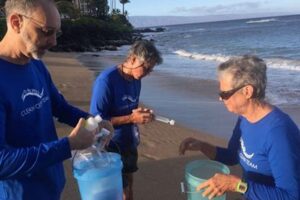Table of Contents
The world of dentistry goes beyond just treating teeth and gums. It’s about providing compassionate care, spreading awareness about oral health, and making a positive impact on communities around the world. And at the heart of this mission are selfless individuals who volunteer their time and expertise to help those in need: volunteer dentists.
Volunteer dentists play a crucial role in bridging the gap between those with access to quality dental care and those who lack the resources or opportunities to receive it. They bring their skills, knowledge, and passion to communities that may not have access to regular dental care, providing much-needed services and making a lasting difference in the lives of countless people.
While the benefits of volunteering in dentistry are immense, it comes with its own set of challenges and considerations. This article will explore the rewards and responsibilities that come with being a volunteer dentist, as well as the various opportunities available for those who wish to contribute their time and expertise to this noble cause.
Volunteer Dental
Making a difference, one smile at a time.
- Providing essential care to underserved communities
- Promoting oral health awareness and education
- Bridging the gap in access to dental services
- Offering compassionate care to those in need
- Fulfilling the ethical responsibility of dentists
- Enhancing professional skills and knowledge
- Creating a positive impact on communities
- Experiencing the joy of giving back
Volunteer dentists are the epitome of selfless service, dedicating their time and expertise to improve the oral health and overall well-being of those who need it most.
Providing essential care to underserved communities
Underserved communities often face significant barriers to accessing quality dental care, including financial constraints, lack of insurance, limited transportation options, and cultural or language barriers. Volunteer dentists play a vital role in addressing these disparities by providing essential dental services to those who need them most.
- Reaching Vulnerable Populations:
Volunteer dentists reach out to vulnerable populations, such as the homeless, elderly, disabled, and low-income families, who may not have access to regular dental care.
- Offering a Wide Range of Services:
Volunteer dentists provide a comprehensive range of services, including preventive care, restorative treatments, and emergency dental interventions, helping to improve the overall oral health of underserved communities.
- Promoting Early Intervention:
By providing early intervention and preventive care, volunteer dentists help identify and address oral health problems at an early stage, reducing the need for more complex and expensive treatments in the future.
- Raising Awareness and Educating:
Volunteer dentists also play a crucial role in raising awareness about oral health and providing education to underserved communities, empowering individuals to take better care of their teeth and gums.
The essential care provided by volunteer dentists goes beyond treating teeth; it helps improve the overall health and well-being of individuals and communities, fostering a healthier and more equitable society.
Promoting oral health awareness and education
Oral health awareness and education are essential components of preventive dentistry, and volunteer dentists play a crucial role in promoting these efforts within underserved communities.
- Teaching Proper Oral Hygiene:
Volunteer dentists educate individuals on proper oral hygiene practices, including brushing, flossing, and using mouthwash, to help prevent cavities, gum disease, and other oral health problems.
- Raising Awareness about Oral Health Issues:
Volunteer dentists raise awareness about common oral health issues such as tooth decay, gum disease, and oral cancer, empowering individuals to take proactive steps to maintain good oral health.
- Providing Information about Dental Services:
Volunteer dentists provide information about available dental services, including preventive care, restorative treatments, and emergency dental interventions, helping individuals understand the importance of regular dental checkups and treatment.
- Dispelling Myths and Misconceptions:
Volunteer dentists dispel common myths and misconceptions about oral health, such as the belief that cavities are caused by sugar alone or that baby teeth are not important, ensuring that individuals have accurate information to make informed decisions about their oral health.
By promoting oral health awareness and education, volunteer dentists empower individuals and communities to take charge of their oral health, leading to improved overall health outcomes.
Bridging the gap in access to dental services
One of the most significant challenges faced by underserved communities is the lack of access to affordable and quality dental services. Volunteer dentists play a vital role in bridging this gap and ensuring that everyone has the opportunity to receive the oral care they need.
- Reaching Underserved Areas:
Volunteer dentists reach out to underserved areas, including rural and remote communities, where access to dental care may be limited or non-existent, bringing much-needed dental services to those who need them most.
- Providing Affordable Care:
Volunteer dentists often provide their services at reduced rates or on a sliding scale, making dental care more affordable for low-income individuals and families.
- Offering Mobile Dental Clinics:
Volunteer dentists may also operate mobile dental clinics, which travel to different locations to provide care to those who may have difficulty accessing traditional dental offices.
- Collaborating with Community Organizations:
Volunteer dentists collaborate with community organizations, such as schools, health centers, and homeless shelters, to provide dental care to individuals who may not be aware of or able to access other dental services.
By bridging the gap in access to dental services, volunteer dentists help ensure that everyone, regardless of their socioeconomic status or location, has the opportunity to achieve and maintain good oral health.
Offering compassionate care to those in need
At the heart of volunteer dentistry lies the commitment to providing compassionate care to those in need. Volunteer dentists understand that oral health is an integral part of overall health and well-being, and they strive to treat their patients with dignity, respect, and empathy.
- Patient-Centered Approach:
Volunteer dentists adopt a patient-centered approach, listening to their patients’ concerns and needs, and tailoring treatment plans accordingly.
- Eliminating Fear and Anxiety:
Volunteer dentists go above and beyond to create a welcoming and supportive environment, helping to alleviate fear and anxiety associated with dental visits.
- Providing Emotional Support:
Volunteer dentists recognize that their patients may be facing challenging circumstances, and they offer emotional support and encouragement during treatment.
- Restoring Confidence and的笑容:
By providing high-quality dental care, volunteer dentists help restore their patients’ confidence and smiles, empowering them to live healthier and happier lives.
Offering compassionate care to those in need is not just a professional obligation for volunteer dentists; it is a reflection of their dedication to making a positive impact on the lives of others.
Fulfilling the ethical responsibility of dentists
Dentists have a unique ethical responsibility to provide care to those in need, regardless of their ability to pay or their social status. Volunteer dentistry is a powerful way for dentists to fulfill this ethical obligation and give back to their communities.
- Commitment to Patient Welfare:
Volunteer dentists prioritize the well-being of their patients, putting their needs above financial considerations.
- Promoting Equity and Access:
Volunteer dentists work to promote equity and access to oral care, ensuring that everyone has the opportunity to achieve and maintain good oral health.
- Addressing Disparities:
Volunteer dentists address disparities in oral health by providing care to underserved populations who may face barriers to accessing dental services.
- Advocating for Oral Health Policies:
Volunteer dentists advocate for policies that improve oral health outcomes for all, including increased access to preventive care and affordable dental services.
By fulfilling their ethical responsibility to provide care to those in need, volunteer dentists make a significant contribution to the overall health and well-being of their communities.
Enhancing professional skills and knowledge
Volunteer dentistry provides dentists with valuable opportunities to enhance their professional skills and knowledge, contributing to their overall professional development.
- Expanding Clinical Experience:
Volunteer dentists gain hands-on experience treating a wide range of oral health conditions, expanding their clinical skills and expertise.
- Learning New Techniques:
Volunteer dentists have the chance to learn and apply new techniques and technologies, staying up-to-date with the latest advancements in dentistry.
- Improving Diagnostic Skills:
Volunteer dentists refine their diagnostic skills by encountering diverse cases and collaborating with other dental professionals.
- Developing Communication and Patient Management Skills:
Volunteer dentists develop strong communication and patient management skills by interacting with patients from various backgrounds and needs.
Enhancing professional skills and knowledge through volunteer dentistry not only benefits the dentists themselves but also contributes to the overall quality of dental care provided to underserved communities.
Creating a positive impact on communities
Volunteer dentists make a profound impact on the communities they serve, contributing to improved oral health outcomes and overall well-being.
Enhancing Access to Care: By providing dental services to underserved populations, volunteer dentists increase access to care for those who may not otherwise have the means or opportunity to receive it. This leads to early detection and treatment of oral health problems, preventing more serious complications and improving overall health.
Reducing Health Disparities: Volunteer dentists play a crucial role in reducing health disparities by addressing the oral health needs of vulnerable populations. By providing care to those who have historically faced barriers to accessing dental services, volunteer dentists help to level the playing field and create a more equitable society.
Promoting Oral Health Education: Volunteer dentists not only provide treatment but also educate individuals and communities about the importance of oral health. They teach proper oral hygiene practices, dispel myths and misconceptions, and raise awareness about oral health issues. This knowledge empowers individuals to take control of their oral health and make informed decisions about their dental care.
Fostering Community Partnerships: Volunteer dentists often collaborate with community organizations, schools, and healthcare providers to deliver dental services. These partnerships strengthen the community’s support network and foster a sense of collective responsibility for the health and well-being of all members.
The positive impact of volunteer dentists extends beyond the dental chair; it contributes to healthier, happier, and more productive communities.
Experiencing the joy of giving back
Volunteering in dentistry is not just about providing care; it is also about the profound sense of fulfillment that comes from making a difference in the lives of others.
- The Power of a Smile:
Witnessing the transformation in a patient’s smile after receiving much-needed dental care is an incredibly rewarding experience. Volunteer dentists have the privilege of restoring not only oral health but also confidence and self-esteem.
- Building Relationships:
Volunteer dentists develop meaningful relationships with their patients, often serving them over extended periods. These relationships go beyond the clinical setting, creating a sense of community and support.
- Appreciation and Gratitude:
The gratitude expressed by patients and their families is a powerful reminder of the impact that volunteer dentists have on their lives. This appreciation serves as a constant source of motivation and inspiration.
- Fulfilling a Higher Purpose:
Volunteer dentists experience a sense of purpose and fulfillment knowing that they are contributing to a noble cause. They are part of a global movement dedicated to improving oral health and overall well-being.
The joy of giving back through volunteer dentistry is a unique and rewarding experience that enriches the lives of both the dentists and the communities they serve.
FAQ
If you’re considering becoming a volunteer dentist, you may have questions about what it entails and how you can get involved. Here are some frequently asked questions and answers to help you learn more:
Question 1: What are the benefits of volunteering as a dentist?
Answer: Volunteering as a dentist offers many benefits, including the opportunity to give back to your community, enhance your professional skills, experience the joy of helping others, and contribute to improving oral health outcomes for underserved populations.
Question 2: What kind of volunteer opportunities are available for dentists?
Answer: Volunteer opportunities for dentists vary widely and can include providing direct patient care in clinics or mobile dental units, conducting oral health screenings and education programs, participating in research projects, and advocating for policies that improve access to oral care.
Question 3: How can I find volunteer opportunities in my area?
Answer: There are several ways to find volunteer opportunities in your area. You can contact local dental societies, community health centers, homeless shelters, and other organizations that provide dental care to underserved populations. Online platforms and websites dedicated to volunteerism can also help you connect with opportunities that match your interests and skills.
Question 4: What qualifications do I need to volunteer as a dentist?
Answer: The qualifications required to volunteer as a dentist vary depending on the specific opportunity and organization. Generally, you must be a licensed dentist in good standing and have a passion for serving others. Some volunteer positions may also require additional skills or experience, such as working with specific populations or using specialized equipment.
Question 5: How much time do I need to commit to volunteering?
Answer: The time commitment required for volunteer dentistry varies depending on the opportunity and your availability. Some volunteer positions may require a few hours per week, while others may require a more significant time commitment. It’s important to choose an opportunity that fits your schedule and lifestyle.
Question 6: What if I don’t have any experience in volunteering?
Answer: Don’t let a lack of experience hold you back from volunteering as a dentist. Many organizations are willing to provide training and support to new volunteers. You can also gain experience by shadowing experienced volunteer dentists or participating in volunteer dental events.
Closing Paragraph for FAQ:
Becoming a volunteer dentist is a rewarding and fulfilling way to make a difference in your community and beyond. With a variety of opportunities available, there’s sure to be a volunteer position that matches your skills, interests, and schedule. Take the first step today and explore the many ways you can give back through volunteer dentistry.
Transition Paragraph:
In addition to volunteering your time and expertise, there are other ways you can support volunteer dentistry and contribute to improving oral health for underserved populations. Here are a few tips:
Tips
In addition to volunteering your time and expertise, there are other ways you can support volunteer dentistry and contribute to improving oral health for underserved populations. Here are four practical tips:
Tip 1: Donate to Volunteer Dental Organizations:
Many organizations rely on donations to provide free or low-cost dental care to those in need. Your donation, no matter how small, can make a big difference in helping these organizations continue their important work.
Tip 2: Spread the Word:
Help raise awareness about volunteer dentistry and the need for oral health care in underserved communities. Share information about volunteer opportunities, fundraising events, and other initiatives on social media, in your community, and among your friends and family.
Tip 3: Volunteer Your Non-Dental Skills:
Even if you’re not a dentist, you can still contribute to volunteer dentistry efforts. Many organizations need volunteers for non-clinical roles, such as administrative tasks, fundraising, event planning, and patient transportation. Your skills and talents can be just as valuable as those of a dentist.
Tip 4: Advocate for Oral Health Policies:
Advocate for policies that improve access to oral care and promote good oral health. Contact your elected officials and let them know that you support funding for dental programs, expanding Medicaid coverage, and other measures that will help ensure everyone has access to quality dental care.
Closing Paragraph for Tips:
By following these tips, you can make a significant contribution to volunteer dentistry and help improve the oral health of underserved communities. Every little bit counts, and together we can make a difference.
Transition Paragraph:
Volunteering in dentistry is a rewarding and fulfilling experience that can make a real difference in the lives of others. Whether you choose to volunteer your time, expertise, or resources, there are many ways you can contribute to this noble cause. By working together, we can create a healthier and more equitable society where everyone has access to quality oral care.
Conclusion
Volunteer dentistry is a powerful force for good, transforming lives and communities one smile at a time. Volunteer dentists, driven by compassion and a commitment to making a difference, provide essential care to underserved populations, promote oral health awareness and education, and bridge the gap in access to dental services.
By volunteering their time, expertise, and resources, volunteer dentists play a crucial role in improving the oral health and overall well-being of those who need it most. They not only restore smiles but also instill confidence, empower individuals, and create a positive impact that extends beyond the dental chair.
If you are considering becoming a volunteer dentist, I encourage you to take the first step and explore the many opportunities available. The rewards of volunteer dentistry are immeasurable, and the difference you will make in the lives of others is truly priceless.
Together, we can create a world where everyone has access to quality oral care and can smile with confidence. Let’s continue to support and celebrate the incredible work of volunteer dentists who are making a lasting impact on the world, one smile at a time.






